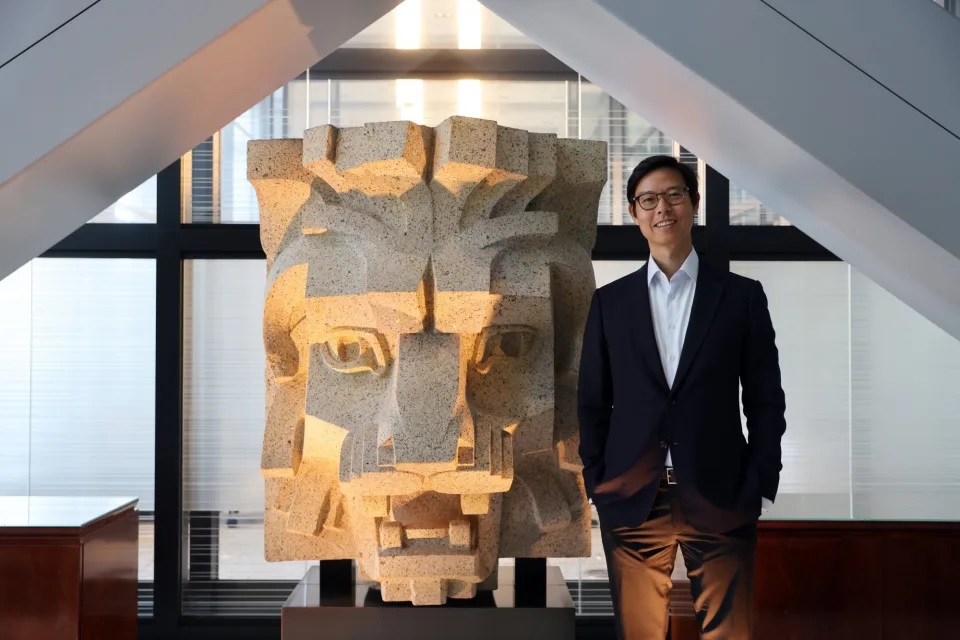HSBC said it may buy financial businesses and shed unprofitable units around Asia to expand its footprint for serving wealthy customers, as Hong Kong’s largest bank looks to fine-tune its growth strategy to deliver the best returns for shareholders.
“While organic growth will continue to be a core expansion strategy for HSBC, mergers, acquisitions and disposals will be a key strategy to expand in new markets and to strengthen our existing business lines,” the bank’s Asia-Pacific co-CEO David Liao said in an interview with the Post. “We will only conduct a deal when the targets can be fully integrated into our existing businesses. At the same time, we will dispose of businesses in markets that do not have the scale or growth potential.”
The focus on shareholder returns partly reflects HSBC’s new strategy to deflect last year’s break-up call by its largest stakeholder Ping An Group.
Do you have questions about the biggest topics and trends from around the world? Get the answers with SCMP Knowledge, our new platform of curated content with explainers, FAQs, analyses and infographics brought to you by our award-winning team.
The bank, founded in 1865 in Hong Kong and Shanghai, this week added to its shopping basket the Singapore real estate manager SilkRoad Property Partners, with US$2 billion of assets under management. The bank bought Citigroup’s retail wealth management business on the mainland in October, taking over a portfolio with US$3.6 billion in assets and deposits, with customers in 11 Chinese cities.
The shopping spree is consistent with HSBC’s plan to grow its wealth management, family office and private banking business across the “fastest-growing” region worldwide, Liao said.
“Many entrepreneurs have established their businesses for decades and accumulated much wealth,” he said. “HSBC has developed a range of private banking, family office, wealth management and insurance services to capture these growing opportunities.”
HSBC will also double down on its investments in Asia, particularly in its mainland ventures. The bank raised its stake in HSBC Qianhai Securities to 90 per cent last year from 51 per cent, and took full ownership of HSBC Life China in 2020.
“This reflects HSBC’s commitment to expand on the mainland as we believe the country will continue to open up its financial services sector, and the future growth will be huge,” Liao said.
HSBC swooped in on the UK unit of Silicon Valley Bank (SVB) for a nominal £1 (US$1.23) in March when the US lender went into a liquidity crisis. The acquisition has attracted “billions” of deposits inflow and gave a clear signal that HSBC “wants to be heavily involved in the tech in the innovation sector,” CEO Noel Quinn said during an interview.
The bank, which has been shedding units in North America, will continue to dispose of non-productive businesses. HSBC will complete the sale of its Canadian unit to the Royal Bank of Canada in the first quarter of 2024 after selling its Greece and Russia businesses in the first half of this year. It reached revised terms to sell its French retail business in June.
HSBC sold its retail and business bank in Mauritius to the Absa Group last month, and wound down its personal banking unit in New Zealand in June. Wholesale banking will continue in both markets, giving HSBC a footprint of 18 markets across Asia-Pacific.
These disposals form part of Quinn’s plan to streamline the bank’s operations and shift capital from underperforming businesses in the West to the growing Asia market.
HSBC operates in 62 countries and territories, but most revenue and profit are from Asia, particularly Hong Kong and the mainland. Hong Kong contributed to 29 per cent of the bank’s third-quarter earnings, when pre-tax profit rose 20 per cent to US$2.23 billion.
The bank moved its headquarters from Hong Kong to London to comply with the UK’s banking law after it acquired the Midland Bank in 1992. That had been a sore point for many HSBC’s shareholders, especially after the bank gave in to the UK regulator’s call in 2020 to preserve its capital and cancel its dividend payout, a vital source of income for many long-term, retail shareholders.
The bank, which reviews the location of its headquarters every few years, concluded in 2016 that it would keep its address in London. It has since dispatched several senior bankers to Hong Kong to follow through on Quinn’s focus on Asia.
“We take the Hong Kong market very [seriously] and we will continue to invest here, [with] various schemes to support the local economy,” Liao said, adding that the bank’s philanthropy for supporting the city includes the HSBC Hong Kong Community Festival, which kicks off this Sunday in Central.
“Hong Kong will continue to be the focus of [our] expansion, as the city plays an important role in the Greater Bay Area, with strategic roles in Asia as a whole,” he said.
HSBC, which opened in Shenzhen in 1982, now operates in all 21 prefecture-level cities in Guangdong province. It will open the 25-storey new HSBC office tower in Qianhai next year.
Liao himself is actively taking part in Hong Kong’s push to be what Chief Executive John Lee calls the “value-added superconnector” between China, Southeast Asia and the Middle East.
“HSBC has a big operation in the Middle East with over 4,000 staff, and we are the trustee for the first Saudi ETF that listed in Hong Kong,” he said. “We have big operations in Singapore and India to help promote trade finance, wealth and other Southeast Asian businesses.”
Source : Yahoo


